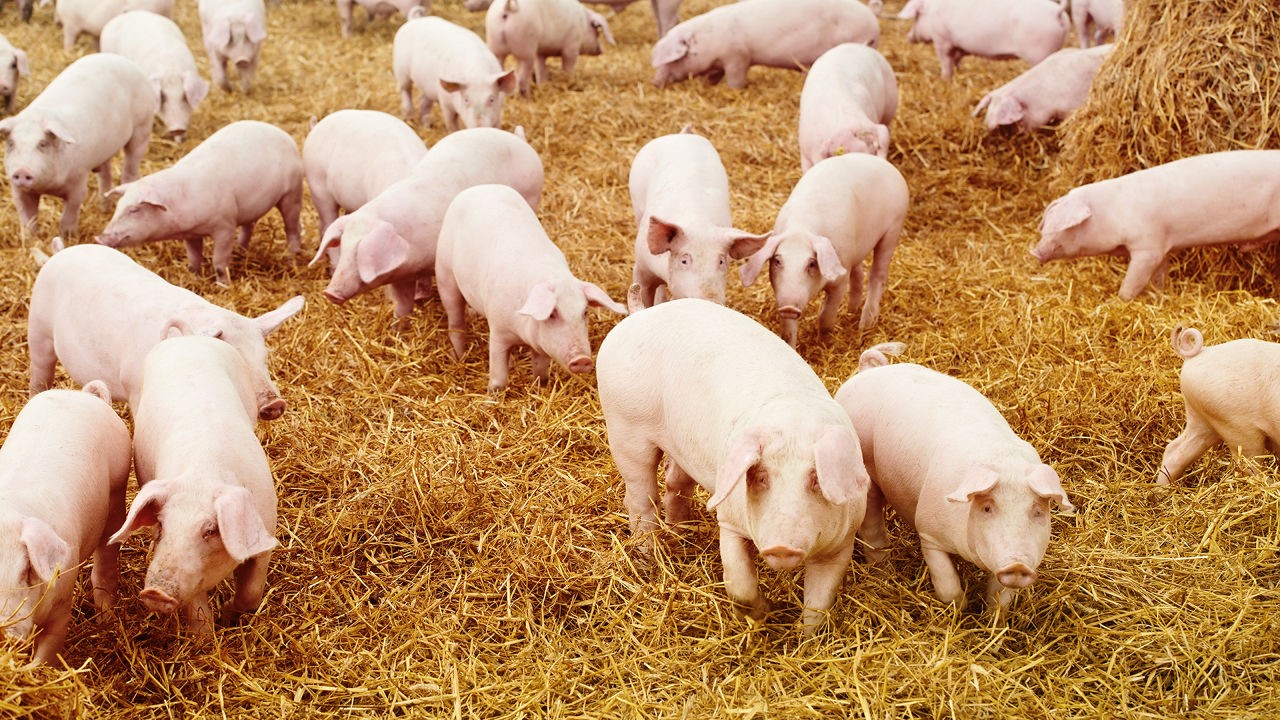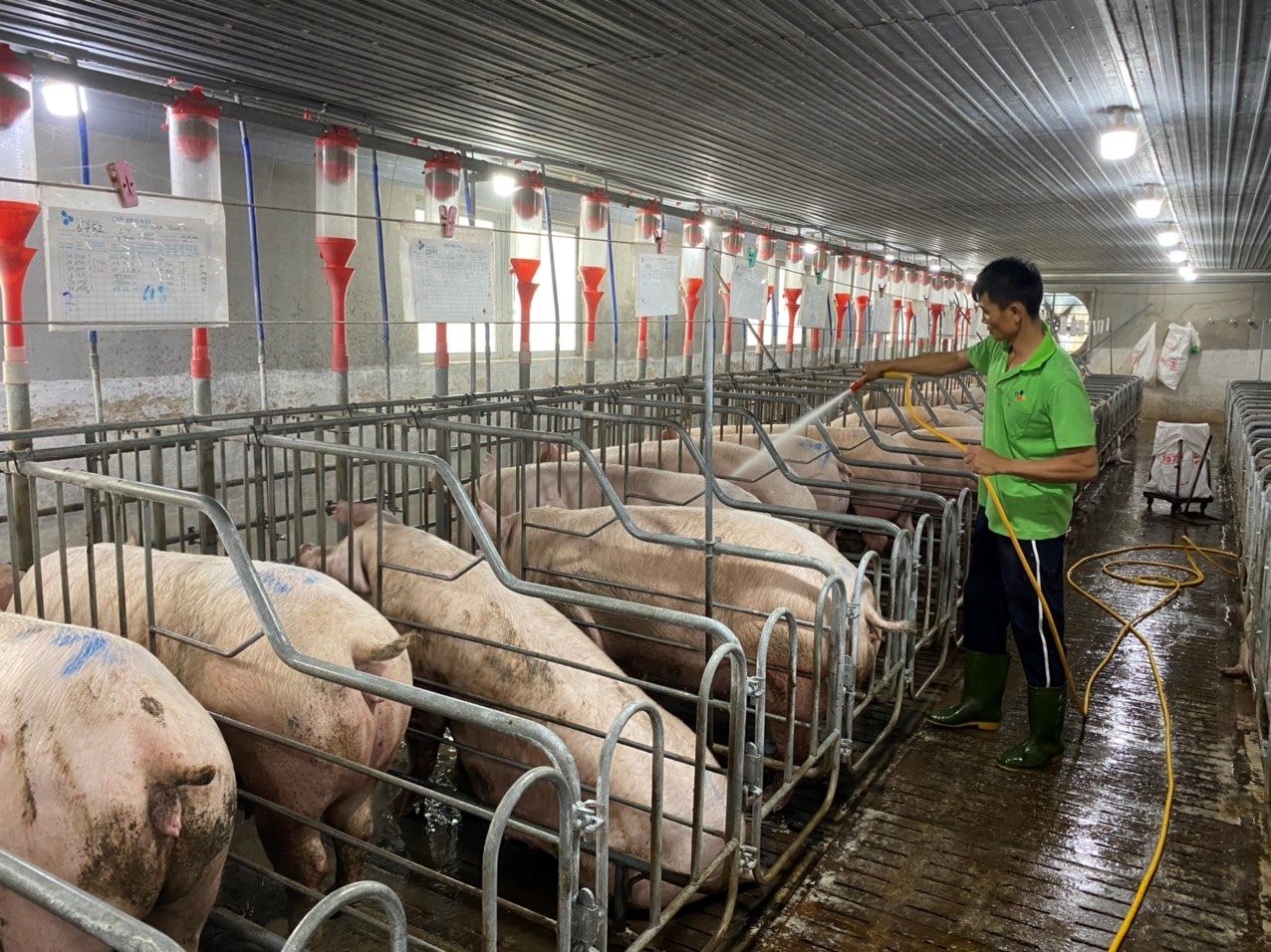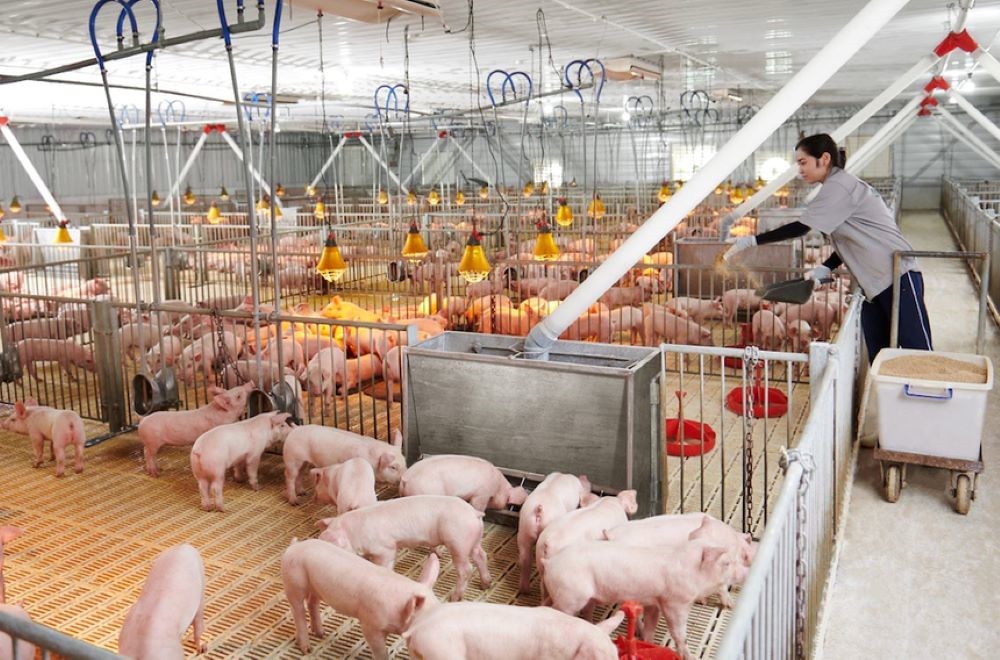Pig barn odors not only affect the health of animals but also negatively impact the environment and surrounding life.
Currently, pig prices are high. Therefore, the demand for raising pigs, as well as herd restoration, is high. However, pig farming also causes many environmental problems, especially the odor of pig barns. The odor not only affects the health of livestock but also pollutes the environment and affects human life. Therefore, finding effective odor treatment solutions is necessary to ensure sustainable development.
I. CAUSES OF BAD ODORS IN PIG FARMS
Barn odors come from many different sources, including:
Pig waste and urine: Pig waste contains many easily decomposable organic compounds that create an unpleasant odor.
Emissions from organic decomposition: Anaerobic fermentation produces gases such as NH3, H2S and other volatile organic compounds that create unpleasant odors.
Poor ventilation system: causes toxic gases to accumulate in the barn.
Leftover feed and contaminated drinking water: Feed residue that is not consumed promptly also contributes to unpleasant odors.

II. SOLUTIONS TO TREAT PIG BARN ODOR
1. CLEAN AND MANAGE WASTE
Feces and urine should be cleaned regularly to avoid fermentation and odor generation.
Using waste treatment systems: Biogas systems can be used to utilize waste as energy and reduce odors.
Classification and composting of organic fertilizers
2. IMPROVE VENTILATION SYSTEM
Build a cool barn: Make sure the barn has a reasonable window system and ventilation fan to reduce the accumulation of toxic gases.
Install exhaust fan system: helps to remove polluted air, maintain fresh air in the barn.
3. BIOLOGICAL PRODUCTS TO TREAT BARN ODORS
Supplementing probiotics in the diet: Farmers can use probiotic products such as Haspro, Fizymlus, etc. Helps pigs digest and absorb feed thoroughly, reduces barn odor, limits toxic gases and helps reduce respiratory diseases.

Using Microbiological products to treat odors: Farmers can use EM-N2 or Biolac yeast to spray on the barn floor or waste. To help reduce odors, eliminate toxic gases in manure. At the same time, stimulate beneficial microorganisms in the barn floor to develop, quickly decompose waste residue, reduce pollution in the livestock area. When the barn is clean and free of toxic gases, it also helps reduce the incidence of respiratory diseases and stress for animals.
4. USE EASY-TO-FIND MATERIALS SUCH AS LIME POWDER AND ACTIVATED CARBON TO ABSORB ODORS
Lime powder: helps disinfect, reduce humidity and inhibit odor-causing bacteria.
Activated carbon: Helps absorb toxic gases effectively.
5. BUILD A WASTEWATER TREATMENT SYSTEM
Wastewater settling and filtration system: Helps remove residue and limit water pollution.

Or use Biological Pond: by using aquatic plants to absorb excess nutrients, reduce pollution.
Treating barn odors requires the application of many synchronous solutions from waste management, improving the barn environment to using biological products. These measures not only help reduce environmental pollution but also improve the quality of livestock farming, helping the livestock industry develop sustainably.
